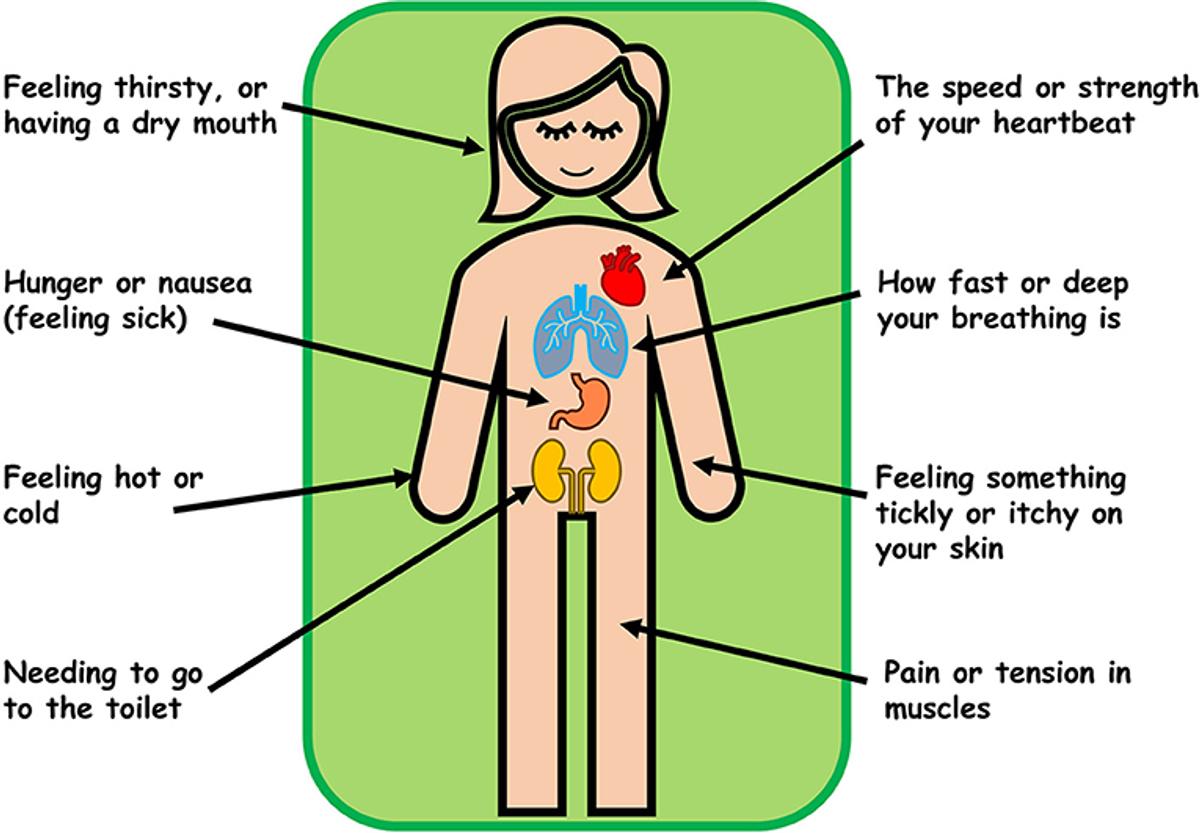Wellbeing Report
Meet Katherine!

Wellbeing Report
Meet Katherine!


Hi, I’m Katherine, a Provisional Psychologist working here at Saltwater, and I have a passion for all things kids and families.
This Wellbeing article is focusing on a crucial function of our body that we often overlook when we talk about emotional regulation:
What is Interoception and why it’s Important!
We’ve likely all heard of the five basic senses Sight, Smell, Hearing, Touch, Taste, but we also have a few others – one of which is called Interoception. This is our awareness and understanding of the internal sensations of our bodies.
When we experience an emotion, it is usually accompanied by a change in the body. Commonly experienced changes in sensation include increased heartrate, hotness/flushing of cheeks, sweaty palms, goosebumps’ on the skin, nausea, hunger, thirst, muscle tension, and a fullness or heaviness in the bladder and bowels. Sometimes these body signals are ‘clues’ we can use to help interpret feelings such as anxiousness or frustration.
Differences in how people detect and perceive these internal sensations is highly individual – just like every aspect of our bodies and personalities. Some people rush to the toilet just in time or not in time (is this your child?). Different situations give us butterflies in our stomach (public speech, making a phone call).
You can start building a child’s interoception skills through simple exercises designed to get them noticing these internal sensations. I like to start with how bodies feel when we sit down at the table to eat, versus how it feels when we finish our meal. Discussing sensations during physical activity is a great way to have them start to recognise when they breathe faster and when their heart beats faster, and sensations in their fingers, toes, arms, and legs. I recommend using examples from this book, 'Listening to My Body' by Gaby Garcia, which you can find here: https://www.youtube.com/watch?v=zr0yFEBFyUU.
Understanding how stress and activities of daily life affect your brain and body can improve both your mental and physical health. If you think your child might be struggling with detecting and interpreting their body signals more than others their age, the best place to start would be a visit to your GP or an occupational therapist.
Thanks,
Katherine Cail
Provisional Psychologist
Saltwater P9 College

